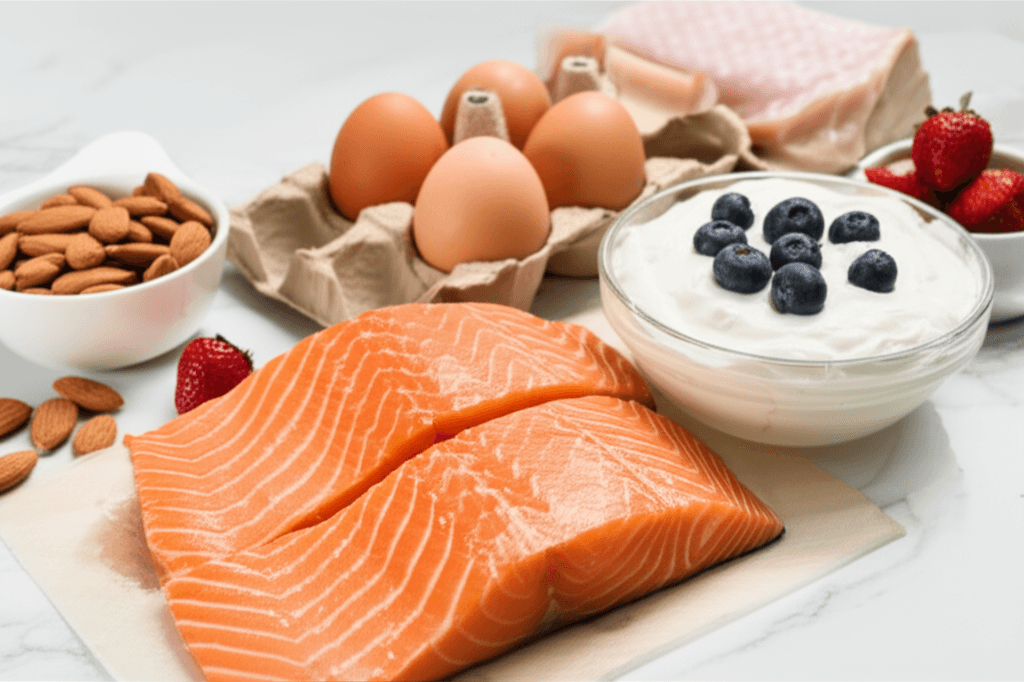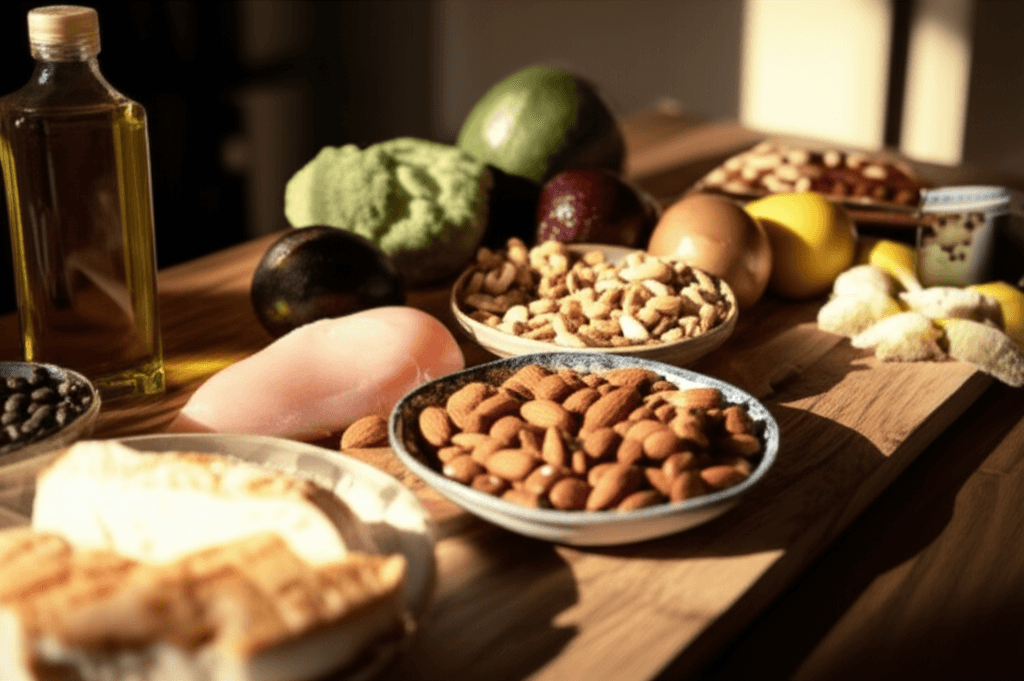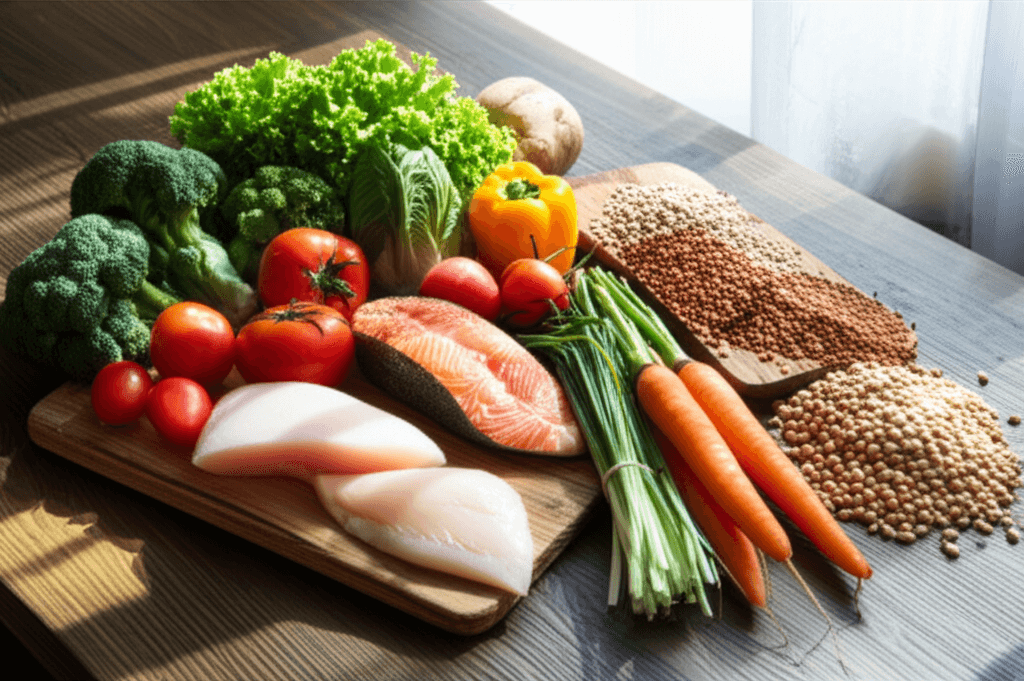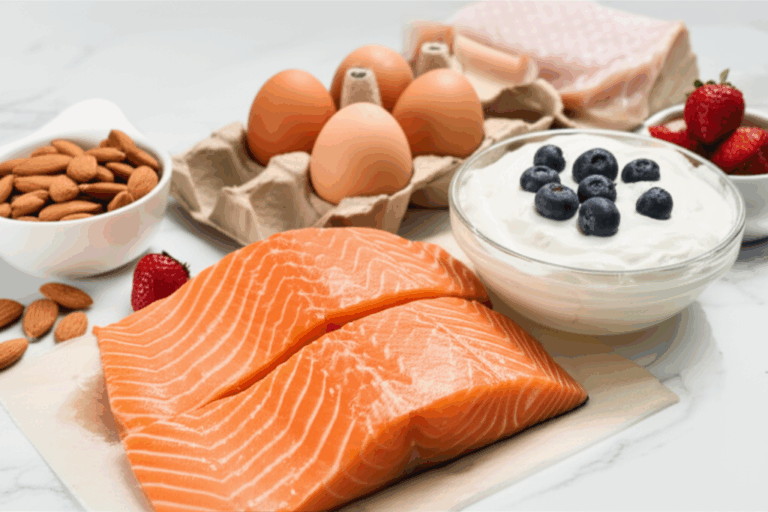Are you meticulously tracking your protein, choosing lean cuts, and ditching processed foods, yet the scale stubbornly refuses to budge? You’re not alone. Many individuals diligently pursue a protein-rich, “healthy” diet, only to find their weight loss efforts stalled. As a fitness trainer, I frequently encounter this frustration. While protein is undeniably crucial for satiety, muscle preservation, and a healthy metabolism, it’s just one piece of a much larger, intricate puzzle.
The belief that simply eating enough protein and “clean” foods is sufficient for weight loss overlooks several critical physiological and lifestyle factors. Let’s delve into why focusing solely on protein might be holding you back and what other essential elements need your attention.

The Indisputable Benefits of Protein for Weight Loss
Before dissecting its limitations, it’s important to acknowledge protein’s power. Protein is a macronutrient vital for numerous bodily functions, and it plays a significant role in weight management.
Satiety and Appetite Control
Protein is the most satiating macronutrient, meaning it helps you feel fuller for longer. This can naturally lead to consuming fewer calories throughout the day by reducing hunger and curbing cravings. Protein helps regulate appetite-controlling hormones, increasing levels of satiety hormones like GLP-1, peptide YY, and cholecystokinin, while decreasing the hunger hormone ghrelin.
Muscle Preservation and Metabolism
When you’re in a calorie deficit, your body can break down muscle tissue for energy, which is counterproductive for weight loss. Protein helps protect this lean muscle mass, which is metabolically active and burns more calories at rest than fat. Maintaining muscle mass is key to keeping your metabolic rate higher, making it easier to burn calories and lose weight sustainably.
Thermic Effect of Food (TEF)
Protein has a higher thermic effect than carbohydrates or fats. This means your body expends more energy (calories) to digest, absorb, and metabolize protein. While not a magic bullet, this higher energy expenditure contributes to your overall calorie burn.

Beyond Protein: The Overlooked Factors Hindering Weight Loss
Even with adequate protein, several other elements must align for successful and sustainable weight loss.
1. The Undeniable Rule of Calorie Deficit
The fundamental principle of weight loss remains: you must consume fewer calories than your body burns. This is known as a calorie deficit. Even if your diet is rich in healthy, protein-packed foods, overeating those foods will still lead to a calorie surplus and weight gain, not loss. A modest deficit, often 300-500 calories per day, is generally recommended for healthy, sustainable weight loss of about 0.5 to 1 kg (1 to 1.5 pounds) per week. Drastically cutting calories can be detrimental, potentially leading to muscle loss and a slowed metabolism as the body enters “starvation mode.”
2. The Crucial Role of Macronutrient Balance
While protein is vital, carbohydrates and healthy fats also play indispensable roles. A truly healthy diet provides a balanced intake of all three macronutrients.
Complex Carbohydrates
Not all carbs are created equal. Complex carbohydrates (found in whole grains, fruits, and vegetables) provide sustained energy, fiber, and essential nutrients. Fiber-rich carbohydrates increase satiety and support a healthy digestive system, which can help moderate food intake. Eliminating them entirely can lead to energy crashes and nutrient deficiencies.
Healthy Fats
Dietary fats were once demonized, but healthy fats are crucial for hormone regulation, nutrient absorption (especially fat-soluble vitamins A, D, E, and K), and enhanced satiety. Monounsaturated and polyunsaturated fats, found in foods like avocados, nuts, seeds, and fatty fish, can help reduce cravings and support a healthy metabolism.
3. The Power of Micronutrients
Vitamins and minerals (micronutrients) are essential catalysts for countless metabolic processes. A diet lacking in these can impair your body’s ability to efficiently convert food into energy, despite adequate macronutrient intake. Focus on a diverse range of fruits, vegetables, and whole foods to ensure you’re getting all the necessary micronutrients.
4. Optimal Meal Timing and Frequency
While there’s no one-size-fits-all approach, consistent meal timing can help regulate blood sugar levels and energy throughout the day, preventing extreme hunger that often leads to overeating. Some fitness experts suggest that incorporating protein, fiber, and healthy fats at breakfast can be particularly impactful for steady blood sugar and sustained satiety.
5. Hydration: The Often-Forgotten Element
Water is critical for every cellular activity in the body, including metabolism and fat breakdown (lipolysis). Staying adequately hydrated can help you feel fuller, potentially reducing overall calorie intake, and may even temporarily increase calorie burning. Aim for at least 8 glasses (about 2 liters) of water daily, and even more if you’re active.
6. The Non-Negotiables: Sleep and Stress Management
Quality Sleep
Sleep deprivation significantly impacts weight loss. Poor sleep can disrupt hormones that regulate hunger and appetite, such as ghrelin (which increases hunger) and leptin (which signals fullness). It can also lower your metabolism, making it harder to burn calories, and negatively affect your food choices, leading to cravings for high-fat and high-sugar foods. Most adults need 7-9 hours of quality sleep per night for optimal body function and weight management.
Effective Stress Management
Chronic stress triggers the release of cortisol, a hormone that can increase appetite, promote cravings for fatty and sugary foods, and lead to fat accumulation, particularly around the belly. Integrating stress-reduction techniques like exercise, mindfulness, deep breathing, and strong social support can be crucial for weight loss success.
7. The Right Kind of Exercise
While diet is paramount, exercise is your metabolic partner.
Strength Training
Building and maintaining muscle mass through strength training is vital. Muscle tissue burns more calories at rest, helping to elevate your basal metabolic rate. This is especially important during weight loss to prevent metabolic slowdown.
Cardiovascular Exercise
Aerobic activities like walking, jogging, cycling, or swimming are excellent for burning calories and improving cardiovascular health. High-intensity interval training (HIIT) can also be highly effective for burning calories and fat in shorter periods. Combining both strength and cardio offers a comprehensive approach to fitness and weight loss.
8. Individual Metabolic Differences
Everyone’s body responds differently to diet and exercise due to genetics, age, sex, and underlying health conditions. Factors like metabolic adaptation, where your body becomes more efficient at using energy as you lose weight, can also make progress slower. A personalized approach, potentially guided by a healthcare professional, can be highly beneficial.

The Holistic Approach to Lasting Weight Loss
A protein-rich diet is a powerful ally in your weight loss journey, but it is not a standalone solution. If you’re struggling to see results, consider looking beyond just your protein intake. A holistic strategy that encompasses a sustainable calorie deficit, balanced macronutrients, adequate micronutrients, proper hydration, sufficient sleep, effective stress management, and a consistent, varied exercise routine is the true recipe for lasting weight loss and overall well-being. Focus on building these interconnected healthy habits, and the results you’ve been seeking will follow.







